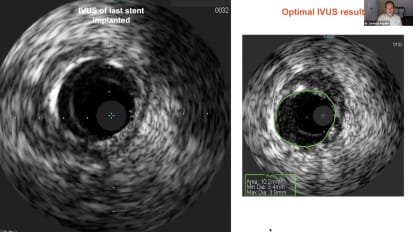Lorenzo Azzalini, MD PhD MSc
Interventional Cardiology

With an international background and exposure to medical training across four countries and two continents, Dr. Lorenzo Azzalini brings to Central Virginia various and unique approaches to treatment of complex heart conditions.
“I like to think of myself as an eclectic professional who can choose from a vast array of possible options to provide each patient with a tailored solution to their heart problem,” says Dr. Azzalini, who has spent his career mastering the art and science of interventional, minimally invasive cardiology treatments.
Inside VCU Health Pauley Heart Center’s advanced Cardiac Catheterization Laboratory, Dr. Azzalini performs interventional treatment for more advanced forms of coronary artery disease, including chronic total occlusions – complete blockages – and severely calcified coronary arteries. These are conditions that, under more conventional techniques are rarely successful.
“My passion is to provide an interventional treatment option to patients with advanced forms of coronary disease where surgery would not be an option,” says Dr. Azzalini, an Associate Professor of Medicine at the VCU School of Medicine and Pauley Heart Center’s Director of Complex Coronary Interventions.
He was brought to VCU Health with the goal of growing the health system’s Complex Coronary Interventions program, aimed at patients with chronic total occlusions, those requiring mechanical circulatory support, and individuals with advanced chronic kidney disease or severely calcified coronary arteries. His field is rapidly evolving, and within a few years Dr. Azzalini expects more interventionalists will be able to treat more advanced forms of coronary disease with less invasive approaches. Data from large clinical trials is also helping doctors better customize care for each patient.
In his current practice, Dr. Azzalini performs a minimally invasive approach known as percutaneous coronary intervention, or PCI. With PCI, a catheter is inserted through a small entry point in the artery of the patient’s wrist or groin, then moved through the circulation system to reach the heart. An injection of contrast dye allows physicians to visualize blockages and move wires, balloons and other specialized devices through the blockages to open the arteries back up. Typically, one or more coronary stents is placed.
Before joining VCU Health, Dr. Azzalini served as co-director of the Chronic Total Occlusion program at San Raffaele Hospital in Milan, Italy.
“I have always been amazed by the complexity of how the human body works. Moreover, I’ve always liked fixing problems and helping people,” he explains. “Interventional cardiology in particular can make a tangible difference in the lives of patients with life-threatening acute and chronic conditions.”
He advises all patients to seek care at the first sign of symptoms or diagnosis. “Conditions that used to be untreatable can now be taken care of, often with excellent long-term outcomes,” says Dr. Azzalini, stressing support from family and friends is also critical. In addition, he:
· Attentively listens to your story and reviews test results with you
· Proposes a treatment plan based on your story and results, which usually involves multiple options
· Guides you to make an informed decision, choosing a path that prioritizes what matters most to you and your family
· Is always available, in case you change your mind, or your conditions change
“Being able to provide a concrete and immediate life-saving treatment to an acute condition like heart attack that once had mortality rates in the double figures is extremely fulfilling for me,” he says. “I love to be able to develop a treatment plan for patients that is tailored to their expectations and needs, and to have the privilege of following them for years — walking with them along their journey.”
Related Videos
 Video
Video
Optimizing coronary stenting: the role of IVUS in today’s precision PCI
Using IVUS and the ULTIMATE study to guide your PCI.
